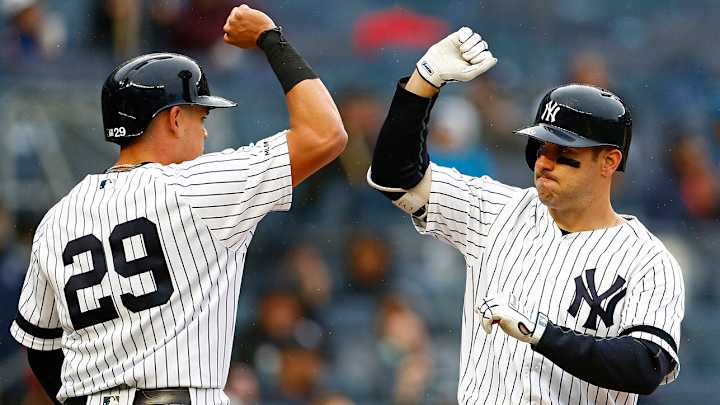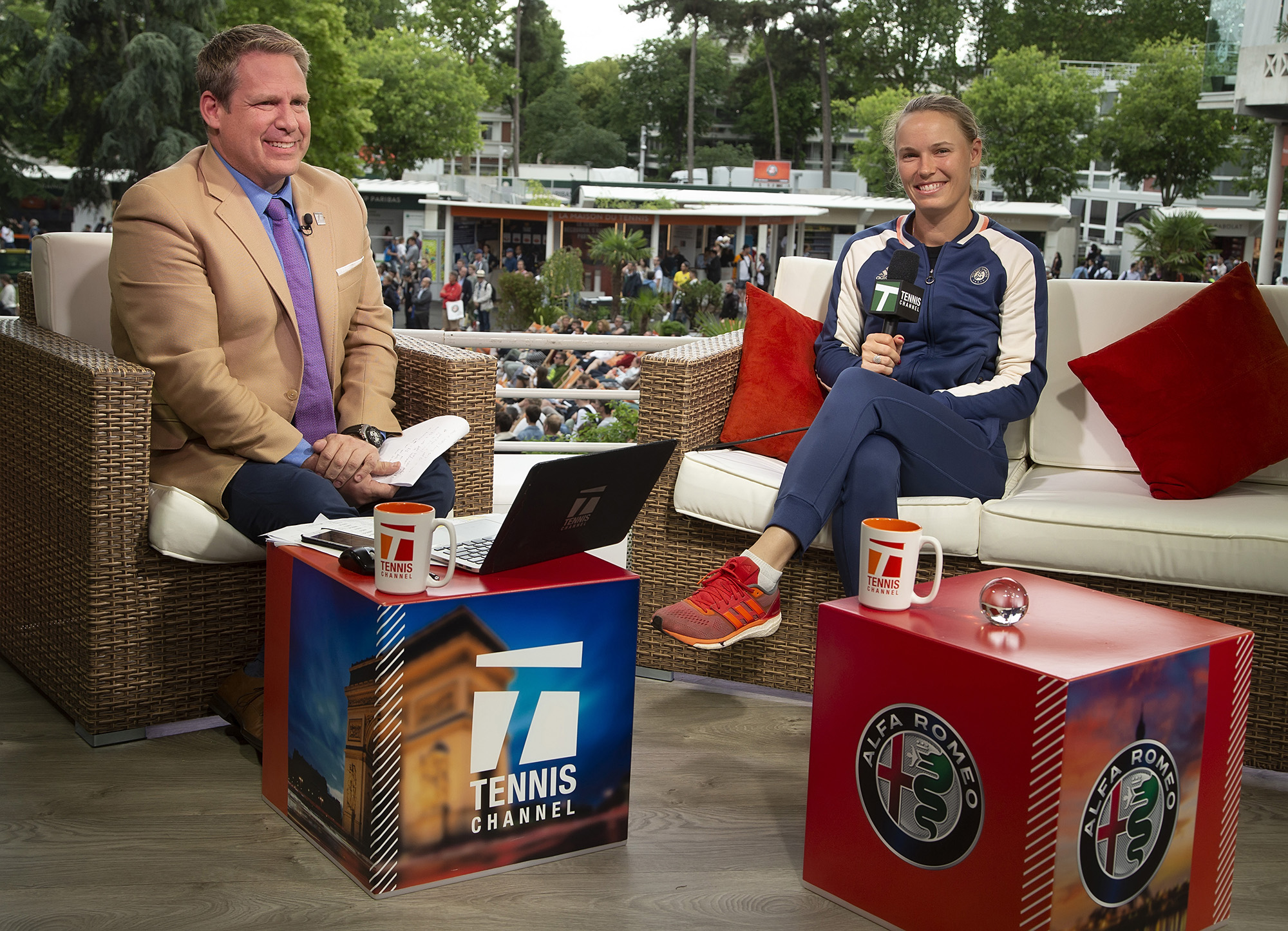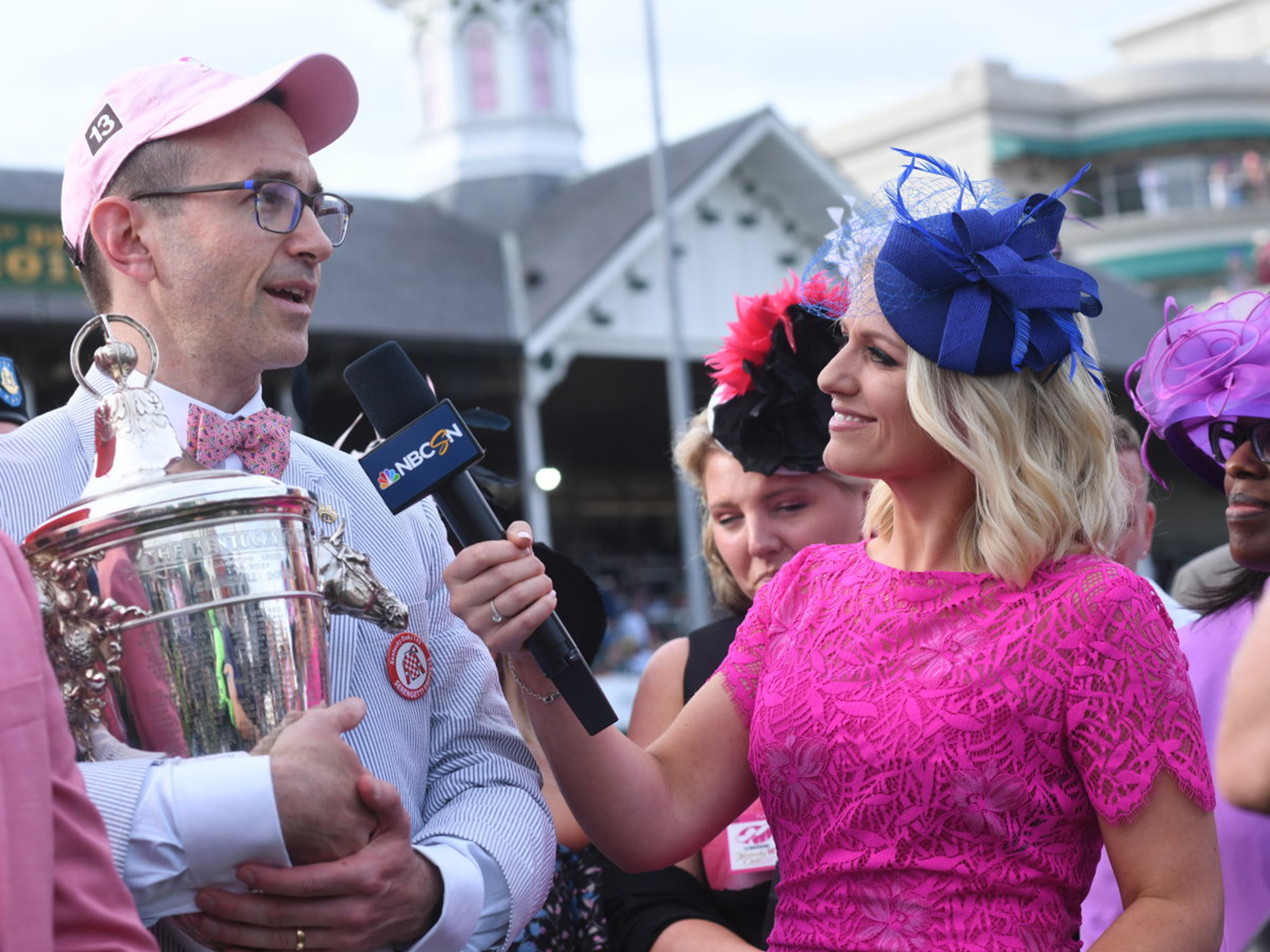What Is Sinclair's Plan for Newly-Acquired Regional Sports Networks?

Local TV behemoth Sinclair Broadcast Group is now also a sports media player to be reckoned with. Following a nearly year-long bidding process, Sinclair has acquired 21 regional sports networks from Disney for $10 billion, giving it local broadcast rights for 42 major professional teams. Last year, the channels combined to reach 74 million homes (for comparison, ESPN is in 86 million and NFL Network hits 70 million). Additionally, Sinclair has joined partnerships with the Cubs and Yankees, giving them sports properties in America’s three largest markets. An analyst told The Baltimore Sun the 21-network deal is “arguably the most transformative” in company history, but the move is not Sinclair’s first into sports.
In 2016, Sinclair purchased Tennis Channel for $350 million. Since then, the cable network has become the fastest growing, not just among sports offerings but across US television. A look at its growth shows what it takes to defy the cable bundle’s downward gravity—and what might be in store for the regional sports networks (RSNs) as they transition to Sinclair ownership.
While Disney was forced to sell the RSNs to avoid antitrust litigation, Tennis Channel found itself looking for a buyer as the result of market forces. Independently owned, it lacked leverage in negotiations with providers like Comcast, who relegated it to an add-on sports tier. In 2015, it was in only 30 million homes as a result. Tennis Channel owners reportedly sought a $500 million sale price, but just like the RSNs (which were once pegged at $20 billion), they ultimately took a discount. Such is the interest in owning cable networks in an era of cord-cutting.

A 30-year industry veteran, Tennis Channel CEO Ken Solomon was well aware of Sinclair’s reputation for aggressive negotiation when it took over in 2016. Leveraging demand for the company’s local stations, Sinclair convinced providers to carry the Tennis Channel too. That’s exactly the strategy Sinclair CEO Chris Ripley will use to generate value from his new sports networks. “We will package things up and incentivize distributors to take everything in one package,” Ripley told The Washington Post.
Because of the weakened position Tennis Channel started in, combined with what Sinclair has pulled off, its current trends stand in contrast to just about every other cable channel. 118 competitors saw declines in homes reached last December, while TC added five million subscriptions. It’s now in over 60 million homes. “In a world where flat is the new up, these numbers are just uncanny,” Solomon said, adding that you can draw a direct line from the stats to Sinclair’s newest endeavor. “You have Sinclair transforming itself, saying … ‘This is working, what would be the next thing, the bigger thing that we could help transform?’” he said. “We were able to provide at least some proof of performance.”
Last fall, the WTA returned to Tennis Channel, cutting short a portion of its lucrative rights deal with beIN Sports after fans complained of being unable to watch a channel with limited distribution. Suddenly, it was Tennis Channel that offered superior reach. As dominoes continue to fall, those rights helped the channel grow its $99/year digital service 25% in 2018. The network regularly uses its linear channel to tease Tennis Channel Plus content, sometimes to a frustrating degree (as its app’s 1.8-star App Store rating attests). Ultimately though, the over-the-top offering remains a smaller piece of the company’s strategy. You’ll still need a cable subscription to catch marquee matches, for instance, as Sinclair’s health stays tied to the larger bundle.
Along the way, Sinclair has not been shy about using its local news sites to help grow interest in its tennis business. “I knew what Sinclair had, websites in every market, local newscasts with sports in them, immense resources to reach viewers … and entice audiences to come see what we’re doing,” Solomon said. Programming from Washington D.C’s Citi Open was aired locally on the company’s WJLA ABC affiliate, as just one example.
Sinclair has drawn praise from President Donald Trump and criticism from media watchdogs for pushing right-leaning messaging on its news stations, leading to concerns about how the company will handle its sports assets. In response, Tennis Channel has emerged as a talking point in the hopes of assuaging fears. “I’ve seen some of the narrative on social media around the worry on right-wing bias,” Cubs business president Crane Kenney said during a radio interview after partnering with Sinclair, “And I’d say, it doesn’t exist on the Tennis Channel if you watch any of their programming there. There’s no news bias.”
Another big question post-sale is how Sinclair will handle gambling coverage. "If you're interested in gaming, we're going to add on extra stats, the ability to do prop bets in the game, pitch by pitch, play by play," Ripley recently told Reuters. "You can play along and wager while you watch."
If Sinclair pulls that off, it will likely be the result of work already underway to bring in-game betting functionality to the Tennis Channel shows. Gambling has been on Tennis Channel’s radar since its years-ago sales process, especially given that the sport is one of the most wagered on worldwide. “We’ve been chomping at the bit for a decade,” Solomon said. Producers have slowly experimented with highlighting wagering stats on-air, while behind the scenes the company has worked on technological possibilities.
Tennis’ myriad opportunities for in-match betting, as well as a year-round calendar of all-day action, make it a prime candidate to benefit from expanded betting opportunities. Viewers wagering on their local NBA team could be convinced to try their hand at—and tune into—a match afterwards, the thinking goes. It would just be the latest bit of synergy for a company rapidly building its own news-and-sports bundle.
REBECCA LOWE ON DERBY SURPRISES AND FINAL EPL WEEKEND
NBC host Rebecca Lowe spent the night before the Kentucky Derby preparing. Covering the event for the first time, “I over-prepped for it hugely,” she said. She watched every NBC race from the last three years as well as the surrounding programming and kept up with every news clip forwarded by the production team. Nearing midnight on Derby Eve, she was still perfecting the questions she’d have ready to ask whichever owner joined her on stage for the trophy presentation. Then she got to Country House. “I don’t know why I’m even doing this,” she said to her producer at the time. “Country House isn’t going to win.” A bolt of lightning might as well have crashed in the background.
Huddled beside race officials and Kentucky governor Matt Bevin, she watched the lengthy objection process play out the following evening. Quiet disbelief took over as the inquiry stretched past 15 minutes. When a producer announced the new result to Lowe through an earpiece, she scrambled for the questions she’d dutifully written in case the 65/1 longshot prevailed. Even still, another surprise was in store, as co-owner Maury Shields, grieving her late husband Jerry, didn’t want to speak, and her nephew, Guinness McFadden was dealing with his own emotions. “Bless his heart he was crying his eyes out,” Lowe said.

And yes, Lowe heard about Keith Olbermann calling her out on Twitter afterwards as “an announcer in a funny accent and a funnier hat trying to be taken seriously.”
“There’s not a lot I can do about my accent,” she said. “I’m not going to become an American host—it’s obviously not who I am, but [the criticism] doesn’t bother me.”
This winter, Lowe jumped at the chance to join NBC’s derby coverage, even if it came during the Premier League’s penultimate weekend. “Straight away I really wanted to do it because I love trying my hand at new things,” she said. “It proved to be a big challenge but it was brilliant.” She said it would be “near impossible” to imagine herself covering the NFL, but just about everything else remains on the table (she’s already contributed to Olympic broadcasts in 2014, ‘16, and ‘18).
Now though, her attention is back on the world of English soccer, which will crown a league champion Saturday. Manchester City would clinch a repeat title with a victory, while Liverpool remains mathematically alive. “It could be a final day for the ages,” Lowe said. It will have to be if it winds up being the most memorable afternoon of her week.
ESPN DEBUTS ITS NEWEST FIGHT ENTRANT
The Professional Fighters League debuted across ESPN+ and ESPN2 on Thursday, moving to the network after NBC Sports broadcast the league’s first season in 2018. ESPN.com promoted PFL 1 ahead of the event, as it joins a growing portfolio of fight sports for the broadcaster. Last month, ESPN’s first exclusive UFC pay-per-view left some fans frustrated, but hiccups won’t stop the network from continuing to push into the genre.
Claiming Thursday nights, PFL CEO Peter Murray is hoping to attract UFC fans looking for action, as well as more casual viewers drawn by his organization’s traditional season and playoff structure. “We’re excited to be part of the next evolution of growth for ESPN as well as the sport,” Murray said. “It’s game-changing.”
"ESPN is the home of combat sports,” ESPN executive vice president, programming and scheduling, Burke Magnus said when the PFL deal was announced. “We look forward to delivering thrilling live PFL events and powerful storytelling to fans, across all platforms."
SCREENSHOTS
• Fox Sports is leading the way among media companies stepping into the world of sports gambling. Fox Bet will debut this fall following a $236 million investment.
• Say goodbye to Mic’d Up on NFL Network, Andrew Marchand writes, reporting that the network has cut a handful of shows as it makes way for special NFL100 content. Meanwhile, Joe Thomas has joined the network.
• NBC Sports Films is debuting a documentary on “refugee, immigrant, cultural icon and racing legend” Mario Andretti Saturday at 2 p.m. Racer spoke with producer Matt Allen in anticipation.
• On his show last week, Dan Patrick revealed health issues—including memory loss—that he’s currently dealing with while undergoing treatment for polymyalgia rheumatica, which he’s suffered from for seven years.
• The Washington Post’s Ben Strauss spent time learning about DAZN’s baseball show.
• Less than two years after being fired from Fox Sports following claims of harassment, Jamie Horowitz has landed as the new head of content for DAZN in the U.S. and Canada.
• If you’ve wondered why the NFL hasn’t slapped ads on its jerseys (ignoring the fact that the jerseys themselves are basically ads), Jonathan Jones has the story for you.
• Will we “look back on the sale of Fox’s RSNs as the moment when the sports rights bubble began to burst”? Joe Nocera thinks we might.
• “We’ve grown past ‘embrace debate,’” Fox Sports national networks president Mark Silverman told Joe Reedy and the Associated Press.
• The Athletic has launched a new video site, promising to deliver weekly releases.
• “The Stefanos Tsitsipas Channel Is Always On.”
THANK YOU INTERNET…
...for, hopefully, finally, moving past coffee-gate, which I never found myself capable of caring about.
